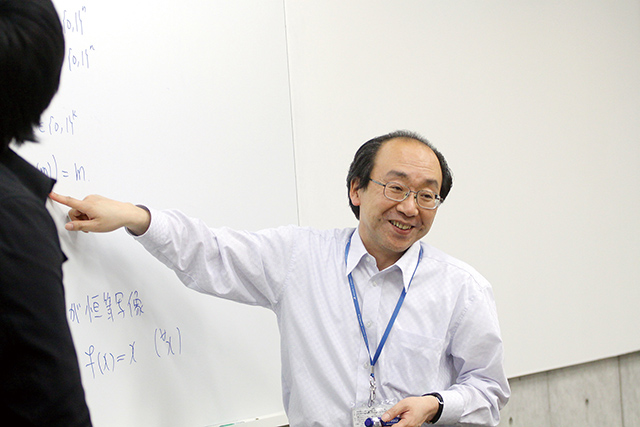Mathematical Science Course

Mathematical Science Course
Your algorithm design will open up a new stage in Information Security
Course Overview
Information security involves a number of mathematical problems, such as cryptography, anonymisation, formal verification, learning, clustering and mining. In the Mathematical Science course, we aim to build a foundation for more efficient and stronger information security. We achieve this aim through a deep understanding of the mathematical issues involved in information security and finding more favorable solutions. In addition to acquiring knowledge from lectures, students promote study and research through small group seminars and tutorials. After completing the course, students are expected to become technical engineers, or researchers in companies, research institutes, or government agencies.
Research Keywords
Number-Theoretic Algorithm, Public Key Cryptography, Homomorphic Encryption, Digital Signature, Authentication, Zero Knowledge Proof, Cryptographic Protocol, Secret Sharing, Formal Verification, Anonymisation, Differential Privacy, Learning, Fundamentals of Artificial Intelligence, Fundamentals of Big Data Security, Clustering, Mining, and Others.
Image of a Master's Dissertation
Students propose original methods, improve existing methods, or evaluate implementation of mathematical problems related to information security, and summarise their work in a paper. For the evaluation of implementations, the software/hardware and associated technical documentation (sufficient to understand and use for the development) may be submitted as a Master's dissertation. The dissertation should raise an appropriate problem, present a logical and convincing argument, and describe the results objectively and verifiably.
Message from the Course Leader

Prof. Seiko Arita
Just as Turing used his research on the Turing machine for decoding messages, there are many mathematical challenges in information security, including cryptography, anonymisation, formal verification and statistical processing. If you are interested in mathematical studies, why don't you study information security from the perspective of the mathematical sciences? Your algorithms and machine designs can play a role in information security.
